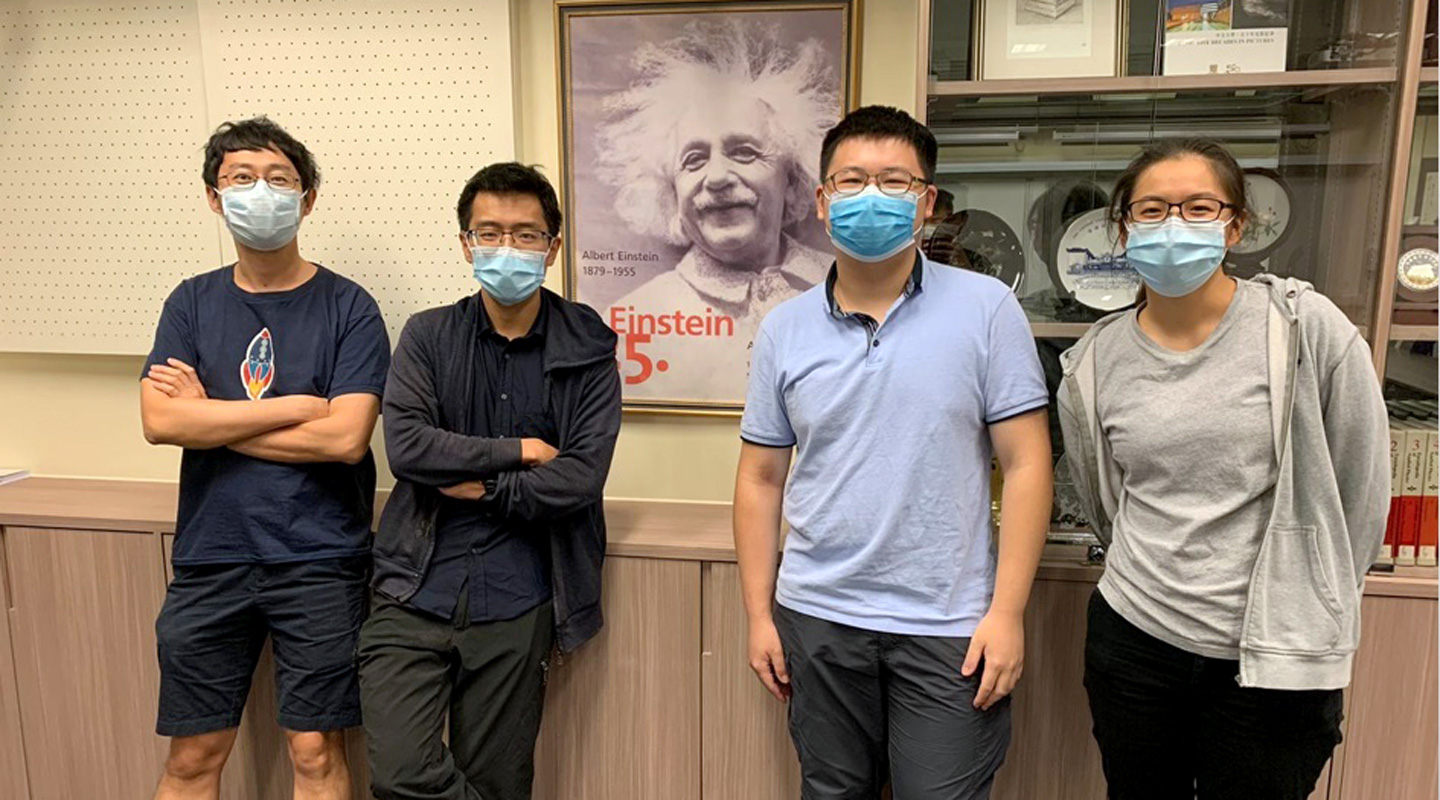Dear readers, With the launch of e-newsletter CUHK in Focus, CUHKUPDates has retired and this site will no longer be updated. To stay abreast of the University’s latest news, please go to https://focus.cuhk.edu.hk. Thank you.
Put an ‘Ink’ on It
Research team from CUHK Physics develops ‘Universal Ink’ to aid chip manufacturing

A research team led by Prof. Yang Seng from the Department of Physics and Dr. Xia Kangwei from the University of Stuttgard has developed an ‘Universal Ink’ which, when combined with single-step laser direct writing technology, can produce high performance electronic chips with simpler procedure and lower costs. Pertinent research finding has been published in Nature Communications.
Based on various fundamental physics principles, the research team came up with a brand-new idea for metal deposition—by introducing semiconductor nanoparticles suspension into metallate solution, they combined the optical tweezer technique and semiconductor photoelectric effect and eventually created the Universal Ink.
In principle, the ‘ink’ works as a ‘glue’ to join the metal particles in the solution into a solid structure and attach them to the substrate. By changing the focus position, selective deposition at an arbitrary position on the substrate is achieved. Through change of ‘ink’ recipes, the team realized deposition with various materials on different substrates.
In relation to the application of Universal Ink, the team found that carbon ink used by traditional Chinese calligraphy and ink painting is one of the best choices in terms of its nanoscale precision, mechanical flexibility, conductivity, and insulation abilities comparable with corresponding bulk material. It can also be realized with simple equipment and, thus, can be easily adapted everywhere. As Universal Ink uses carbon ink, it is environmental-friendly and inexpensive.
In addition, Universal Ink provides distinct solutions to problems unapproachable by other current technology, such as electrode restoration and fabrication of electronics on a 3D scale.
The research in relation to Universal Ink is funded by CUHK and the Research Grants Council of Hong Kong. The University has also filed patents for this new technology.